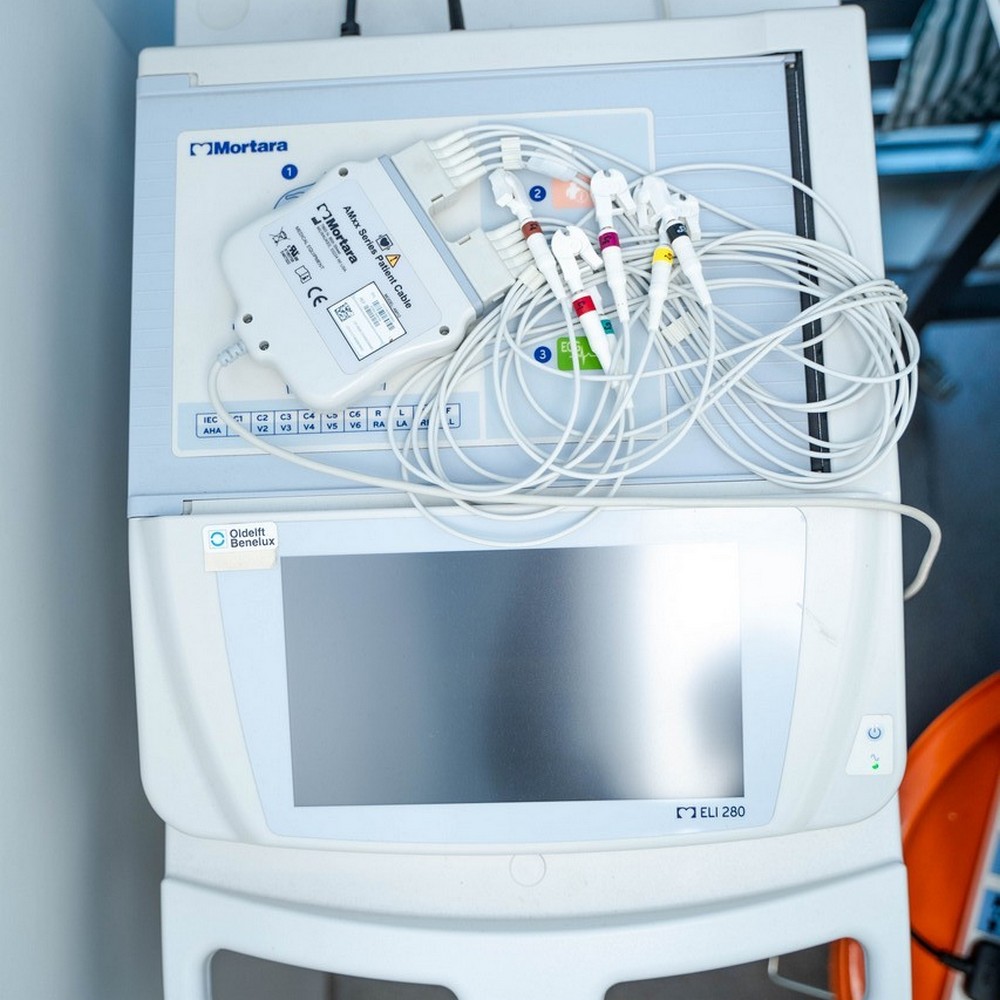
Stress Electrocardiogram
What is a Stress Electrocardiogram?
A stress test helps determine how well the heart works under stress. The test involves exercise on either a treadmill or bicycle. During difficult exercise, the body needs more oxygen, so the heart needs to pump harder to provide it. By showing whether the blood supply is reduced in the arteries that supply the heart, a doctor can use a stress test to determine whether there is coronary artery disease present, and if so, the severity.
Why is a stress electrocardiogram performed?
Doctors may recommend a stress test in order to:
- diagnose coronary artery disease
- diagnose a complaint relating to chest pain, shortness of breath or light-headedness
- determine a safe level of exercise
- determine the effectiveness of procedures done to improve coronary artery circulation in patients with coronary artery disease
- predict the risk of dangerous heart-related conditions such as heart attacks
- Medical exam for safe-sensitive Jobs.
How do I prepare for a stress electrocardiogram?
- Stress tests generally take about 45mins hour, however, allow for 1 hours just to be on the safe side.
- Bring walking shoes and loose-fitting clothing.
- Avoid solid foods for 4 hours before the test.
- Drinking water is ok, however caffeinated drinks should be avoided (i.e. no regular or decaf coffee, tea, chocolate, or soft drink).
- A doctor should be consulted on which medications are ok to take on the morning of the test. Medications should be taken with sips of water only.
- Indicate any medications you are currently taking for any medical condition.
What to expect?
Upon arriving at Jahmale, you will be greeted by our friendly and knowledgeable staff that will register and help you get ready for your exam. Our dedicated staff will walk you through the procedure, answer any questions you may have and ask you to sign a consent form.
electrodes will be attached to the chest, arms and legs. The recording will show how fast the heart beats, its rhythm (steady or irregular), as well as the strength and timing of electrical signals as they pass through each part of the heart.
A blood pressure cuff will be wrapped around the arm to monitor blood pressure during the test. During the test, the exercise level will get progressively harder. However, patients can stop at any time, if they feel chest pain or light headache. At the end of the test, normal activities may be resumed.
How long does the test take?
On average, the examination will take about 45 minutes
When will I get my results?
In most cases, your results may be available within 30 minutes after the procedure. If you are a referral patient, you will be asked to wait for your results and advised to discuss the findings with your doctor, who will offer you detailed information and next steps including treatment. Referring doctors may provide Jahmale with an email address for result delivery. Please note that Jahmale will follow the delivery preference of your doctor considering they are your primary health care provider and have the best knowledge of your medical history.
However, stress electrocardiogram results for Jahmale patients will be sent directly to your doctor to be discussed with you during your follow-up visit.






